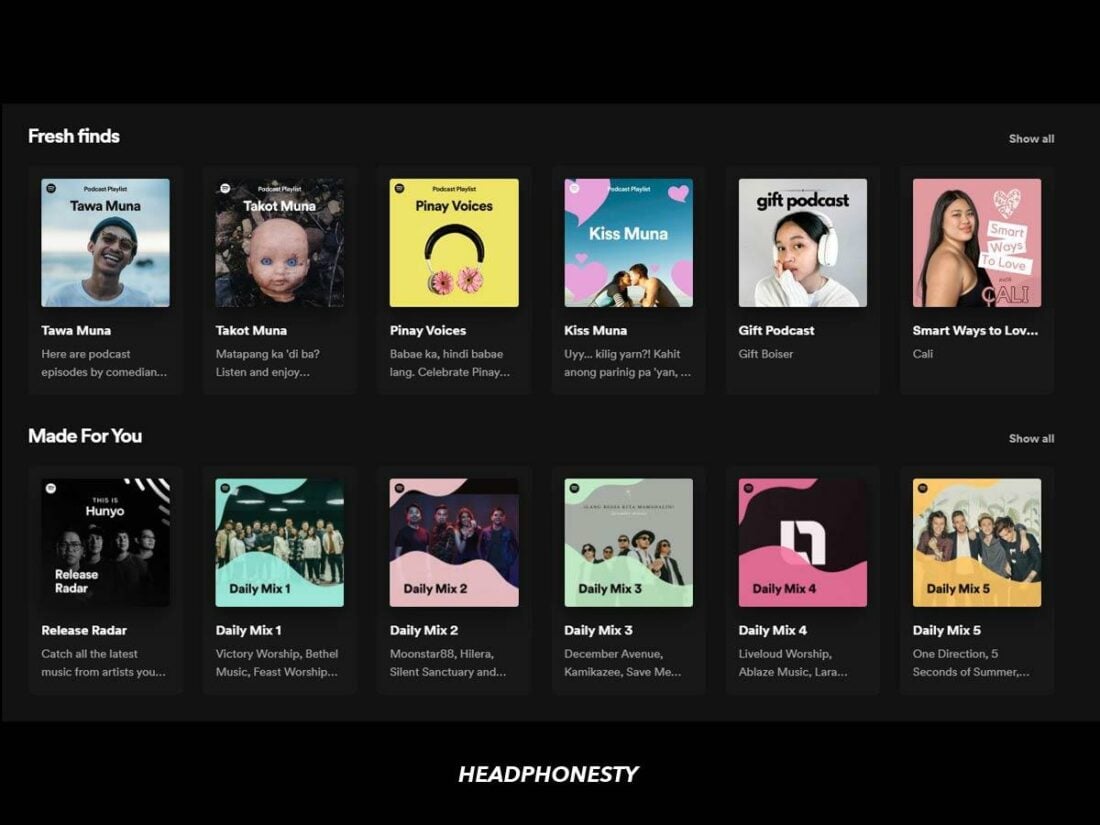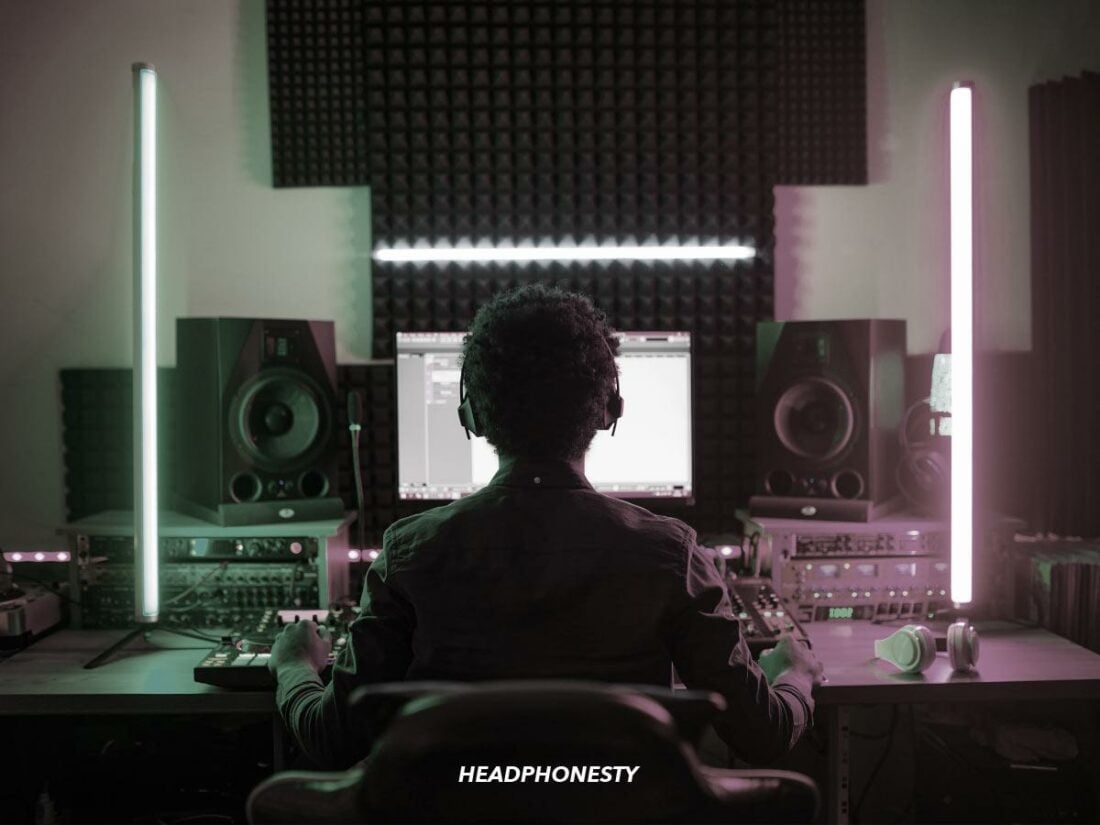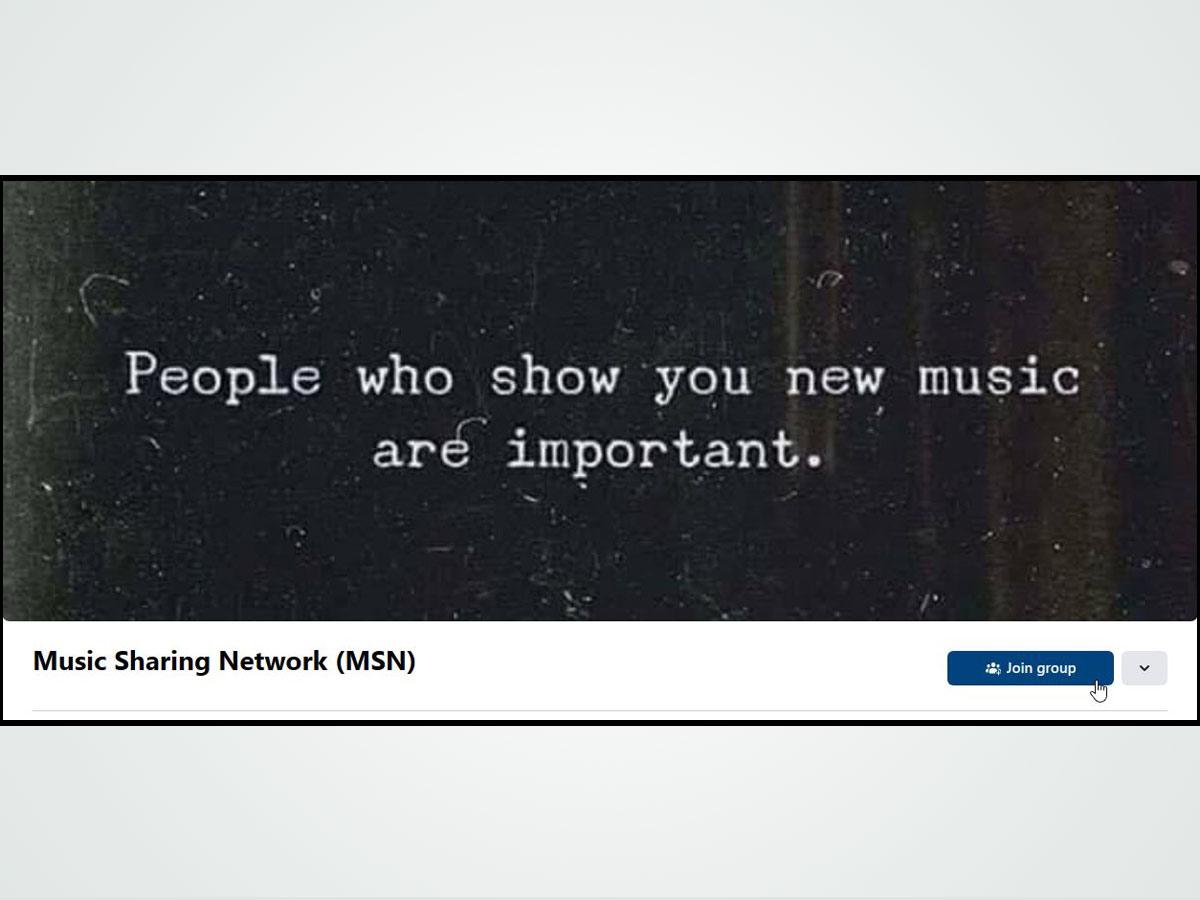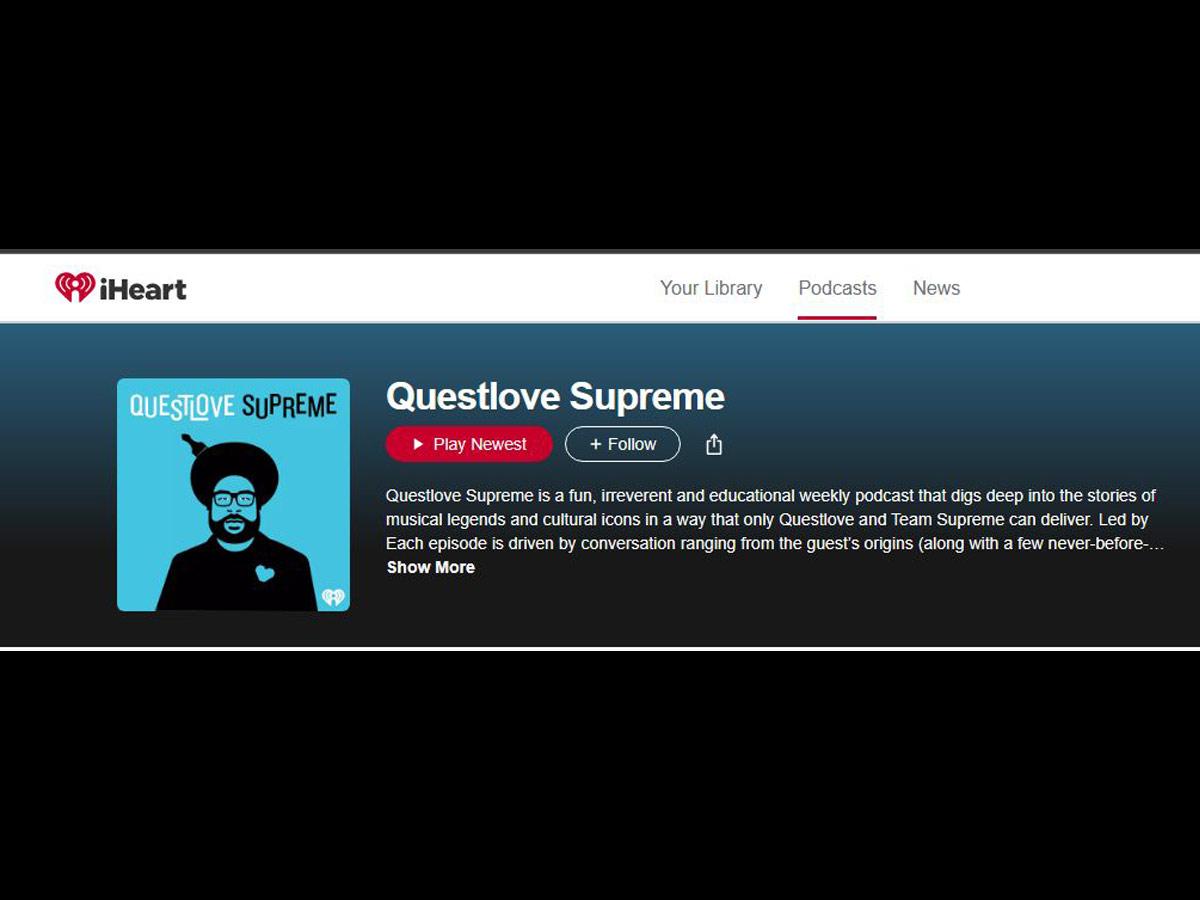Tune in to fresh beats and expand your playlist with these tested-and-proven ways to find new music.
New music can be quite the mood booster. It expands your cultural horizons and exposes you to fresh ideas that enrich your life.
Yet, finding new music to listen to often seems like a tricky endeavor. The sheer number of new music releases available can feel overwhelming. Not everyone has the time to actively listen to emerging artists.
Luckily, you can update your playlists without wasting too much time if you explore avenues beyond the old-fashioned radio. That’s where we come in. We’ve gathered a few practical ways to discover new music – and have fun doing it. Let’s dive in!
1. Check the Music Discovery Feature of Your Streaming Platform

To start with the obvious, music streaming services are an excellent resource for anyone looking to update their music library. We’re talking Spotify, Apple Music, Pandora, Deezer, Tidal, and the like.
With the number of music streaming subscribers rising, platforms are constantly refining their algorithms to help you find new artists based on what you like. Even better, popular music services share common features that promote discovery. Here are a few that should be on your radar:
- Recommendations: Streaming apps tailor recommendations to the user, learning your preferences over time. Most of them, including Tidal, Amazon Music, and Spotify, have sections titled Songs for You, Playlists for You, and so on.
- Personalized mixes: Music discovery apps craft and deliver mixes that match your taste. You’ll find a hefty amount of personalized mixes on Spotify, Tidal, and YouTube Music, but all platforms deliver at least one mix you might enjoy.
- Similar artists: Artist pages on most streaming platforms feature a section that shows similar artists. Some platforms, like Tidal or Amazon Music, also help you find similar albums to what you already like.
- Radio Stations: While Apple Music offers a live radio feature, most streaming apps, including Amazon Music, Pandora, YouTube Music, and Tidal, enable you to access Radio Stations based on a particular artist, song, or album.
- New releases: If you want to stay on top of new releases, many apps feature them prominently on the homepage. The list includes Spotify, Tidal, Amazon Music, Apple Music, and Deezer.
2. Use ‘Best Of’ Lists

‘Best of’ lists are generally compiled by critics and aggregate the best albums or songs based on a set category. As a result, they can help you discover the newest songs and the latest albums or releases from certain genres.
Established websites regularly publish and update ‘Best of’ lists to reflect the ever-changing music landscape. If you need help finding trustworthy music lists, we’ve rounded up five reputable sources:
- Pitchfork: The publication hosts an extensive collection of Lists & Guides. Besides browsing the best music from every year (2022, 2021, and so on), you can check out albums from a specific decade (2010s, 2000s, 1990s, etc.) or look up specific lists like The 53 Best R&B Songs of the ’90s or The 16 Best Ambient Albums of 2020.
- Rolling Stone: Another beloved publication, Rolling Stone hosts an impressive number of lists, including The 500 Greatest Songs of All Time and The 500 Greatest Albums of All Time. Explore their Music Lists section, and you’ll stumble upon collections like The 50 Best Lana Del Rey Songs and The 50 Best Tunes by Made-Up Musicians.
- All Music: The website closes each year with a comprehensive breakdown of best albums (2022, 2021, etc.), so you can work your way through the archive and see if there are any releases you might have missed.
- Rate Your Music: The music database boasts a large online community of passionate users who spend their time putting together ‘Best of’ lists. Browse the List section, and you’ll find titles like 1001 Albums You Must Hear Before You Die, Psychedelic Progressive Metal Essentials, or My Top 100 Songs of 1989.
- Metacritic: The website considers the opinions of critics and distills them to a single number called Metascore. It also hosts year-end lists that will appeal to music enthusiasts, like The 40 Best Albums of 2022 and Best of 2022: Music Critic Top Ten Lists.
3. Use Soundtracks
You’re probably familiar with the concept, but let’s get the definition out of the way first.
Soundtracks are collections of songs and musical arrangements from movies, TV shows, or video games. They can feature original music created for the content in question or existing songs.
Since there’s a good chance you already watch a lot of television, you might as well multitask. You can start by checking out acclaimed movie soundtrack albums already on the market. Additionally, the next time you hear a catchy tune on your favorite TV series, make a note to add it to your playlist.
If you don’t know the name of the song or artist, there are ways to find out:
- Check the end credits: The songs featured in a movie or TV episode appear in the closing credits.
- Use Tunefind: The website brings together songs from TV series, movies, and video games.
- Search the lyrics: If you know a few lyrics, search Google or your music streaming app to find the name of the tune and artist.
- Rely on Shazam or SoundHound: These apps help you identify the music playing around you at the touch of a button.
4. Look Up Other Music by Your Favorite Producer

Another great way to find the music you might like is to look up the producer of some of your favorite songs and see what else they worked on.
Here’s a quick example: Jack Antonoff, lead singer of the rock band Bleachers, is also a prolific songwriter and record producer. He has been working with Taylor Swift for years, collaborating on hits like August, Cruel Summer, and Getaway Car.
If you like these songs, you’ll be happy to know that Antonoff also produced music for Lana del Rey, St. Vincent, Carly Rae Jepsen, and Lorde, among others. You can’t go wrong with checking his other collaborations to see if they’re up your alley.
5. Check Out Fringe Events

This next tip involves leaving the comfort of your home. Rest assured, it’s worth it!
Fringe events are unconventional festivals or happenings that celebrate unique arts. While attending live concerts is never a bad idea, you’re likely already familiar with the headliners when you purchase a concert ticket.
In contrast, fringe events tend to promote underground names. As a result, there’s a better chance of discovering musicians that may appeal to you.
To find new jams, look online to see if there are any fringe events in your area. Or, if you’re passionate about art in general, consider going to some of the biggest fringe festivals taking place every year, worldwide. Some examples include:
- Edinburgh Festival Fringe in Scotland
- Orlando Fringe in Florida, US
- Adelaide Fringe in Australia
- Dublin Fringe Festival in Ireland
- Haslemere Fringe Festival in Haslemere, UK
6. Use Mashups
Music mashups are a fantastic resource if you’re looking for new music to listen to. They blend two or more songs and usually involve changing the tempo or superimposing the vocals of one piece over the instrumental of another.
A mashup exposes you to a variety of songs, improving your chances of finding something you might be into. Once you do, check out the source material for the mashup and add those songs to your regular rotation. Or, take things further by looking up other works by the artists that caught your ear.
You can find a lot of mashups on YouTube and SoundCloud. Here are some of our favorites:
- Pop Songs World 2016: A mashup of pop songs released in 2016 mixed so well that the result resembles one cohesive song.
- Pop Songs World 2022: For something more recent, this mashup flawlessly combines over 100 songs that came out in 2022.
- United State of Pop 2009: A popular mashup of pop songs released in 2009. It excels in making lyrics flow into each other smoothly.
- The Final Teen Spirit: A mashup of Nirvana’s Smells Like Teen Spirit and Europe’s The Final Countdown, which go surprisingly well together.
- Sir Mashalot Mind-Blowing SIX Song Country Mashup: This 6-song country mashup lives up to its description because the songs follow the same formula.
7. Use Social Media

Some people consider social media a waste of time. However, if you use it to your advantage, it becomes an awesome tool for music discovery. With a bit of creativity, you can turn scrolling social feeds into a quest to find new music. Here’s how to get started:
- Twitter hashtags: Explore hashtags related to the type of music you’re interested in, like #newmusic, #nowplaying, #independentartist, or #songwriter.
- Music subreddits: If you prefer Reddit, popular subreddits for music enthusiasts include New Music, Listen to This, MusicMatch, Music Suggestions, and Indieheads.
- Music Facebook groups: There are plenty of music-sharing groups on Facebook, but you can start by joining Music Sharing Network, Free Music Sharing Group, or Music of all times.
- Trending TikTok sounds: When a sound goes viral on TikTok, there’s a good chance the song it originates from will become a hit. You can browse trending TikTok sounds in the platform’s creative center, check out the audio library, or search for a variation of the #viralsound hashtag.
- Songs friends are sharing: You can follow friends whose taste is similar to yours and add their recommendations to your audio library.
8. Read Music Publications
If you prefer to digest your information through the written word, music publications can significantly help with discovery.
Besides keeping you updated on news, they feature interviews and long-form articles highlighting an artist or genre. Furthermore, music magazines and websites publish round-ups of popular songs or do deep dives on underground names.
Pitchfork and Rolling Stone, which we mention in the ‘Best of’ lists section, offer a plethora of content for music fans. Other popular music publications include:
- Billboard: An exhaustive compendium of charting albums and songs.
- Mojo Magazine: Highlights disruptive music with a focus on rock.
- Under the Radar: Independent magazine that showcases exciting young artists.
- Consequence: Offers coverage of both mainstream names and underground acts.
- Stereogum: Established music blog about all things music.
9. Listen to Music Podcasts

Finally, sometimes it’s a good idea to listen to music commentary, especially if you’re eager to discover new artists. That’s where music podcasts come in.
Comedy, news, culture, and true crime are the most popular podcast genres, but there’s a wide choice of music podcasts too. They keep your mind busy when running errands and expose you to new artists, albums, and songs. Win-win!
Here are five well-crafted music podcasts to add to your rotation:
- Lost Notes: A collection of “the greatest music stories never told.”
- Dissect: Examines a single album per season, focusing on hip-hop.
- Song Exploder: Each episode delves into a specific song and showcases how it came to life.
- Popcast: This New York Times podcast covers news, releases, and artists of note.
- Questlove Supreme: The podcast hosted by Questlove digs into the stories of various cultural icons.
Conclusion
By now, we hope that we helped you enrich your music discovery arsenal. Feel free to use the tips above to round up your song collection with catchy new beats.
Which of these music discovery tips are you most eager to try out? Do you have any other advice for music fans on the hunt for fresh bangers? Please let us know in the comments! We always look for earworms to haunt us when facing the dreaded blank page.
